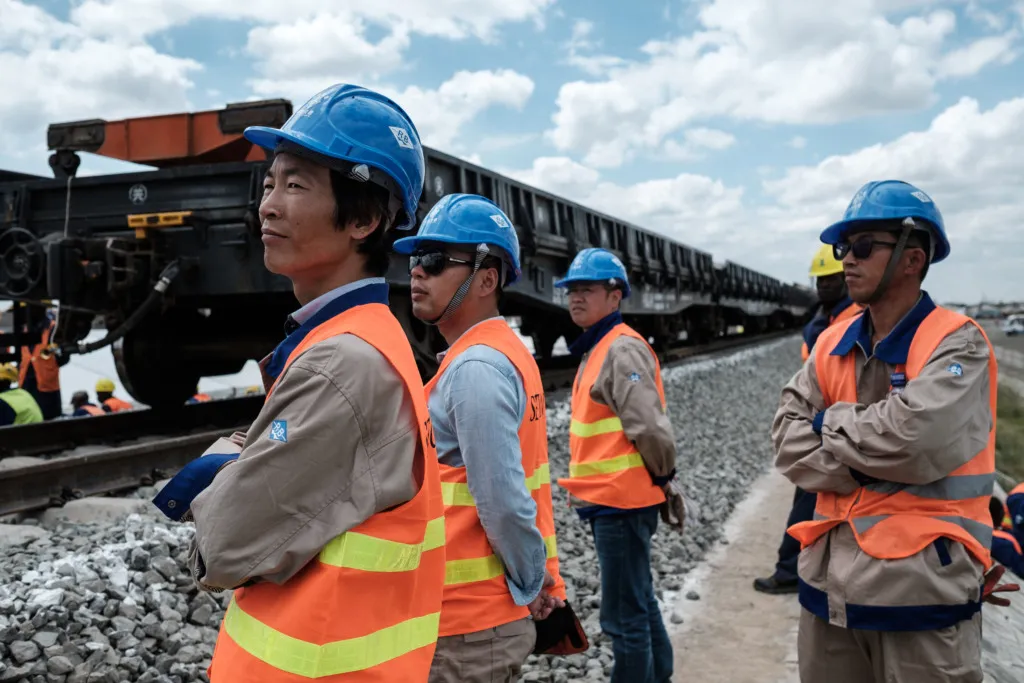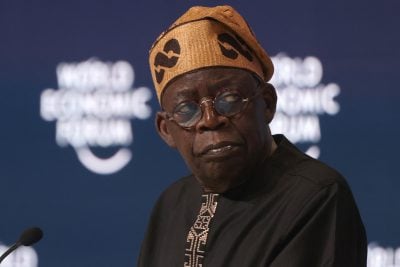In 2018 the German Network for Architecture Exchange and the country’s Ministry of Foreign Affairs brought together policy and construction industry representatives at an event focused on Germany’s relationship with Africa. Part of the conversation was on resolving the question of China’s growing dominance in the African construction market.
Many European firms have lost bids to Chinese contractors, with Chinese bid submissions sometimes 20% below European ones. According to the European International Contractors, China took 62% of the African construction market in 2018. This is an incredible reversal of positions, since according to The Economist, in 1990, American and European companies scooped up more than 85% of construction contracts on the continent.
This changing of the construction guard is illustrative of an important, but overlooked, aspect of the Africa-China relationship – the dominance of Chinese, and not African, firms in the continent’s construction sector. While the arrival of the Chinese has increased competition and driven down the cost of infrastructure, it has also entrenched the trend of external actors dominating an important sector.
If China is serious about a qualitatively better relationship with Africa, this will have to change. China is keen to tout its “all-weather” friendship with Africa, as was stressed by foreign minister Wang Yi, in a 2020 CGTN interview noting that “China and Africa have always shared weal and woe.” But a shift from European to Chinese firms at the expense of the growth of African ones retains the character of an unequal relationship.
What Africa can learn from China
The onus, however, is on African nations. They would do well to learn from how China tackled this problem (growing local firm capacity) during its development phase. Knowledge transfer and building local capacity was a direct function of state policymaking.
As Deborah Brautigam recounts in The Dragon’s Gift, in the late 1970s China turned to Japan to drive its modernisation. It sought Japanese assistance with both turnkey projects and technical expertise for capacity building. Later, through joint ventures and technology licences, the Chinese government ensured that its enterprises built capacity in the areas where they sought assistance.
And while China has provided significant capacity building assistance, African governments need to zero in on the infrastructure building sector. About 68% of China’s lending to the continent has been in the infrastructure space, so building African capacity in executing complex civil works projects at scale is the natural place to start.
On a rapidly urbanising continent, the World Bank predicts demand for infrastructure spending in Africa will be more than $300bn a year by 2040. It will be irresponsible for African governments to surrender this space entirely to Chinese firms, but that is the path we are on.
A Business Daily analysis of almost $700m worth of road projects under the Kenya National Highways Authority (KeNHA) with World Bank and Kenyan government financing, revealed that all of the awards were made to Chinese firms. Up to December 2021, Chinese firms “controlled 85% of KeNHA road projects”.
It is not unreasonable to suspect that this is indicative of China’s share of construction markets in many countries across the continent. However, it is important to point out that the requirements of African governments as expressed through procurement rules inadvertently ensure this dominance.
When Chinese firms first arrived in Africa two decades ago, they occupied a niche where they were cheaper than their European counterparts, if lower on quality, but better than local African firms. Over time, they have matched European firms on quality while besting them on price, essentially edging out the Europeans. African firms have never really been peer competitors, and that needs to change.

Governments can do more
As a former minister of public works in Liberia, it is easy for me to see how and why Chinese firms continue to see their market share grow.
Our procurement rules are designed to extract as much value as possible for every dollar spent. We require bidders to demonstrate relevant expertise by presenting evidence that they have previously executed projects at the scale, complexity, and scope of the one they are bidding for, over a certain period, usually five years. Since many Chinese firms are extensions of provincial and state-owned companies, they usually have a large, recent portfolio of similar if not larger projects.
Our bid documents might also require experience in the African market. This is an added advantage to Chinese firms, since borrowing from China for infrastructure is usually tied to using Chinese firms for project implementation.
This practice also rules out African firms. Since many Chinese firms first entered the market over the last two decades on Chinese government-funded projects they easily tick the box on experience. Since as noted above, they are more competitive than European firms on price and maintain the same level of quality, Chinese firms consistently beat European firms and will only continue to grow their market share.
The benefit of cheaper infrastructure notwithstanding, this arrangement is not in the best interests of Africa. It is time for African governments to restructure their procurement rules to include substantive arrangements that increase the capacity and turnover of local firms.
Building African infrastructure giants
In the spirit of value for money, African governments need to ensure that infrastructure financing delivers more than just roads, ports, or energy plants and grids. The goal must expand to include building local firms and domestic capacity. Policies should be designed to build skills transfer into procurement rules, ensuring substantive participation by local firms in complex projects.
The first step would be to create a list of such firms with a set of criteria including valuation and turnover baselines. This will lead to consolidation of the sector as firms combine or are eased out of competing on large projects. Firms should then be required to remain in good standing with the responsible ministry or agency including by providing clean annual audits.
The ministry or agency can improve the objectivity of this process by inviting the country offices of the African Development Bank and the World Bank to collaborate on maintaining the list, with input on inclusion and sanctions. Their presence will provide a third-party oversight that gives comfort to non-resident actors and acts as a defence against local capture.
Secondly, procurement laws should be amended to include this skills transfer element, with a provision that contracts exceeding a certain dollar figure require a local company in the substantive aspects of the work.
International firms bidding on these contracts should be required to select a local partner from the approved list. These local firms would then be able to build portfolio experience, meet turnover requirements, and gain crucial expertise. They would eventually bid themselves or submit joint bids with other local firms and move up the value chain.
By including these provisions into the procurement laws, even Chinese loans will be compelled to abide by the rules enabling African contractors to participate in the construction of their infrastructure, regardless of funding source.
Gyude Moore is a senior policy fellow at the Center for Global Development a former minister of public works of Liberia.
Want to continue reading? Subscribe today.
You've read all your free articles for this month! Subscribe now to enjoy full access to our content.
Digital Monthly
£8.00 / month
Receive full unlimited access to our articles, opinions, podcasts and more.
Digital Yearly
£70.00 / year
Our best value offer - save £26 and gain access to all of our digital content for an entire year!

 Sign in with Google
Sign in with Google 




